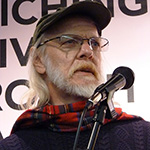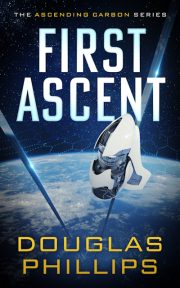Teaching Stuff: Increasing the Inclusion
by Richard J. Chwedyk
 Let me begin with a couple of quotes, because what I say will be taken more seriously if I don’t say it. (I’m just a teacher; what the hell do I know?)
Let me begin with a couple of quotes, because what I say will be taken more seriously if I don’t say it. (I’m just a teacher; what the hell do I know?)
Theodore Sturgeon once wrote this, emphatically, honestly, and truly: “One should write fiction carefully and consciously to someone, as one writes a letter; and the selection of that someone is the single most important skill that a writer can develop.”
And this from Ursula K. Le Guin: “The unread story is not a story; it is little black marks on wood pulp. The reader reading it makes it live: a live thing, a story.”
As a teacher, I have always (almost) tried to stress to my writing students the importance of remembering that we work for an audience, a readership. We are not simply scribbling notes to ourselves (except early on in the process; first drafts can be nothing more than notes to ourselves, still trying to find the stories we’re trying to share) but communicating to someone else out there.
We may have a vague clue as to who that audience might be, or no clue at all. But our goal is – or should be – to find those readers, keep them interested in what we say, maybe even change their lives.
Of recent, science fiction as a form has made some progress in increasing its diversity of voices. That is not only as it should be, but as it has to be for the form to remain a vital part of our culture’s conversation with itself.
I only wish to add, to students, editors, publishers and authors, that some consideration be made not only toward the diversity of the creators of science fiction, but to a diversity of readers as well.
Many of us, when we write, have a preconceived idea of who our readers are. Very often, that idea presumes readers with a familiarity with the form itself, and its practitioners, current and previous. Very often, that idea also presumes an economic status, an educational status, a cultural familiarity tied to the United States, Europe, and a few other English-speaking countries.
This isn’t necessarily bad or wrong, though it may be limiting. There are potential readers out there who do not fit one, or two, or any of these categories. Our stories can speak to these readers if we can address them along with the more “traditional” audience for sf.
This is not an “either or” proposition. There is no reason to believe science fiction speaks to one end of a readership at the exclusion of the other. If we can conceive of a more inclusive population of science fiction writers, what prevents us from conceiving of a wider, more inclusive readership?
Nothing but our imaginations – and imagination is something we’re supposed to be good at.
Back to Le Guin. In her essay, “Things Not Actually Present,” which served as the introduction to The Book of Fantasy, she noted about “realistic” fiction and fantasy: American readers and writers of fiction may yearn for the pure veracity of Jewett or Dreiser, as the English may look back with longing to the fine solidities of Arnold Bennett; but the societies in and for which those novelists wrote were limited and homogeneous enough to be described in a language that could seriously pretend to describe, in Trollope’s phrase, “the way we live now.” The limits of that language – shared assumptions of class, culture, education, ethics – both focus and shrink the scope of the fiction. Society in the decades around the second millennium, global, multilingual, enormously irrational, undergoing incessant irrational change, is not describable in a language that assumes continuity and a common experience of life. And so writers have turned to the global, intuitional language of fantasy to describe, as accurately as they can, the way “we” live “now.” Within that “language of fantasy,” science fiction can (and often does) play a meaningful, integral part.
At this time, when our culture is at once growing but also fragmenting into smaller and smaller groups, cadres, factions, and whatever, it would be appropriate for science fiction as a literature (in the widest sense) to lead the way in bringing more and more readers into our conversation.
It may help to keep science fiction alive; it may also help keep our culture – such as it is, whatever it is – alive.
At least I plan to take my classes further in that direction from here on.
•••
Richard Chwedyk is a Nebula Award-winning science fiction writer, poet and teacher. His work has appeared in Nebula Awards Showcase 2004, Year’s Best SF 7, Year’s Best SF 8, Fantasy and Science Fiction, Amazing Stories, Space and Time, 80! Memories and Reflections on Ursula K. Le Guin and other publications. A collection of his “saur” stories is making the rounds. He lives in Chicago with his wife, poet Pamela Miller, and occasionally blogs at Critinomicon.


